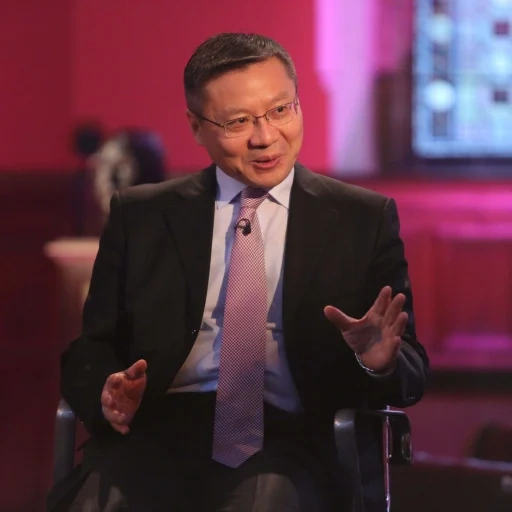Western Media Is Too Late To Defend Its Hegemony
At a technological level, the rise of the non-Western world, particularly China, is striking. During this year’s March Two Sessions, our Minister of Science and Technology, Yin Hejun, informed both domestic and foreign journalists that China has achieved a significant number of original breakthroughs in fields such as quantum technology, integrated circuits, artificial intelligence, biomedicine, and new energy. The export growth rates of EV cars, lithium batteries, and photovoltaic components – collectively known as the “New Three” – are remarkably promising. The Wall Street Journal reported on this development with the headline “The World Is in for Another China Shock.”
My friend forwarded me a fascinating blog post where the author made some intriguing points. The author mentioned that these “New Three” are truly formidable because China has managed to produce them at such a low cost, akin to the “rock-bottom prices.” Over the past three years of the pandemic, amidst US lockdowns and sanctions, China has been expanding its production capacity in a counter-cyclical manner, while the Western countries are moving towards deindustrialization. With high-interest rates in the US, Europe and Russia drifting apart, leading to soaring resource costs, one might wonder how their manufacturing sectors will fare. China’s next move is poised for a comprehensive breakthrough in the chip industry chain. Once achieved, it’s uncertain what headline the Wall Street Journal might come up with next. Could it be “The Shock of China’s Shock”?
In the realm of military affairs, shortly after Biden took office, in August 2021, the US military made a hasty withdrawal from Afghanistan. A chaotic scene unfolded at Kabul Airport as fleeing crowds chased planes on the runway, and Afghan individuals clinging to aircrafts tragically fell to their deaths. German President Steinmeier remarked that this harrowing situation at Kabul Airport was a disgrace for the United States and the Western world. Former US President Trump criticized Biden, stating, “This is the most embarrassing moment in our country’s history.” He added, “If China sees this, they must be delighted, the Chinese are laughing at us.” When asked about Trump’s comments, our Foreign Ministry spokesperson Hua Chunying responded, “Is there even a need for us to laugh at?”
In recent months, the Yemeni Houthi militia has been targeting British and American merchant vessels in the Bab-el-Mandeb Strait under the guise of supporting the Palestinian people. Despite the deployment of US and UK warships for protection, the situation remains tense, with reports of British ships being sunk. The Houthi group continues to launch missiles at British and American vessels, causing concern over the US’s ability to contain the situation and maintain its military dominance.
The American conservative think tank, The Heritage Foundation, went as far as suggesting on its website that if merchant ships from around the world start seeking protection from China instead of the US, it could signify a shift from the “American century” to the “Chinese century.” While the author expressed relief that Beijing has not yet taken on this role, it is a viewpoint that warrants serious consideration.
In the realm of ideology, the soft power of the US and the West is declining at an accelerated pace. For a long time, the US has cloaked itself in the banners of “Democracy, Liberty, Human Rights”, employing deceptive tactics to incite “Color Revolutions” worldwide, resulting in political turmoil and economic decline in numerous nations. The “Arab Spring” that erupted around 2011 ultimately led to the fragmentation of Libya and Yemen, with Syria enduring devastating levels of destruction. International evaluations indicate that the “Arab Spring” inflicted approximately $900 billion in damages to the infrastructure of countries such as Syria, Iraq, Libya, and Yemen, forcing over 15 million people into refugee status.
Ukraine, deeply immersed in Western ideology, has faced a tumultuous fate. The “Orange Revolution” in 2004 and the “Euromaidan Revolution” in 2014 have left their mark. During the chaos at Independence Square in Kyiv in 2014, then Assistant Secretary of State Victoria Nuland personally visited to support the pro-Western faction in Ukraine. However, this key figure behind the Ukrainian “Color Revolution” and the conflict with Russia has recently “resigned.” This move is widely seen as a sign of the failure of Biden’s Ukraine strategy. Sadly, the Ukrainian people, through what they believed to be democratic means, elected a leader who unquestioningly follows the US’s lead. The outcome is a land in ruins, with widespread devastation and despair.
Personally, Ukraine gave me some special memories, because it was the 100th country I researched, and it was from July 17th to 21st, 2006. That was also my last stop in East Europe’s former Socialist countries. I have drawn a careful conclusion to my practical study: a non-western country or non-western region, if transplanted with a Western political system, could only yield one of two: from hope to disappointment, or from hope to desperation.
Now the Western world itself is experiencing constantly from hope to disappointment, maybe some would even face desperation in the future. I remember on January 6th, after the riots on Capitol Hill, Richard Haas, the chairman of the Council on Foreign Relations, exclaimed in a post, “From now on, no one in the world will see, respect, fear, or rely on us America in the same way. If there is a starting date for the ‘post-American era,’ it is almost certainly today.”
 “From now on, no one in the world will see, respect, fear, or rely on America in the same way.”
“From now on, no one in the world will see, respect, fear, or rely on America in the same way.”
This year the entire world shall witness American inferior democracy stepping lower into deteriorate. British media The Guardian posted an article on its website shows that over 80% of US citizens are worried about the American democratic system and future Political violence. It is one of the not much agreement the two parties may gather, that the US will get itself into such disaster.
Great Britain is not so much better, the same media The Guardian quoted a poll on March showing that 79% of the participants think of British politicians as “non-listeners to average people’s opinions”, while 43% think “the UK is downfalling”.
In conclusion, the four pillars of Western hegemony – Economic, Technological, Military, and Ideological – are deeply shaken today, and various reliable alternatives have emerged. Allow me to share a commentary we made shortly after the outbreak of the Russia-Ukraine conflict as a fitting conclusion, showcasing the practicality of our assessment. At that time, I expressed: the conflict once again proves that the world has entered a “post-American era.” The age of US dominance as the sole superpower has ended, and the US can no longer dictate the course of the world. Consequently, a series of US-led institutional arrangements, including alliances like NATO and the status of the US dollar hegemony, may gradually decline. A truly multipolar international order will emerge through the dynamic interplay of revolution, reform, and turbulence.
Editor: Catherine Yang



